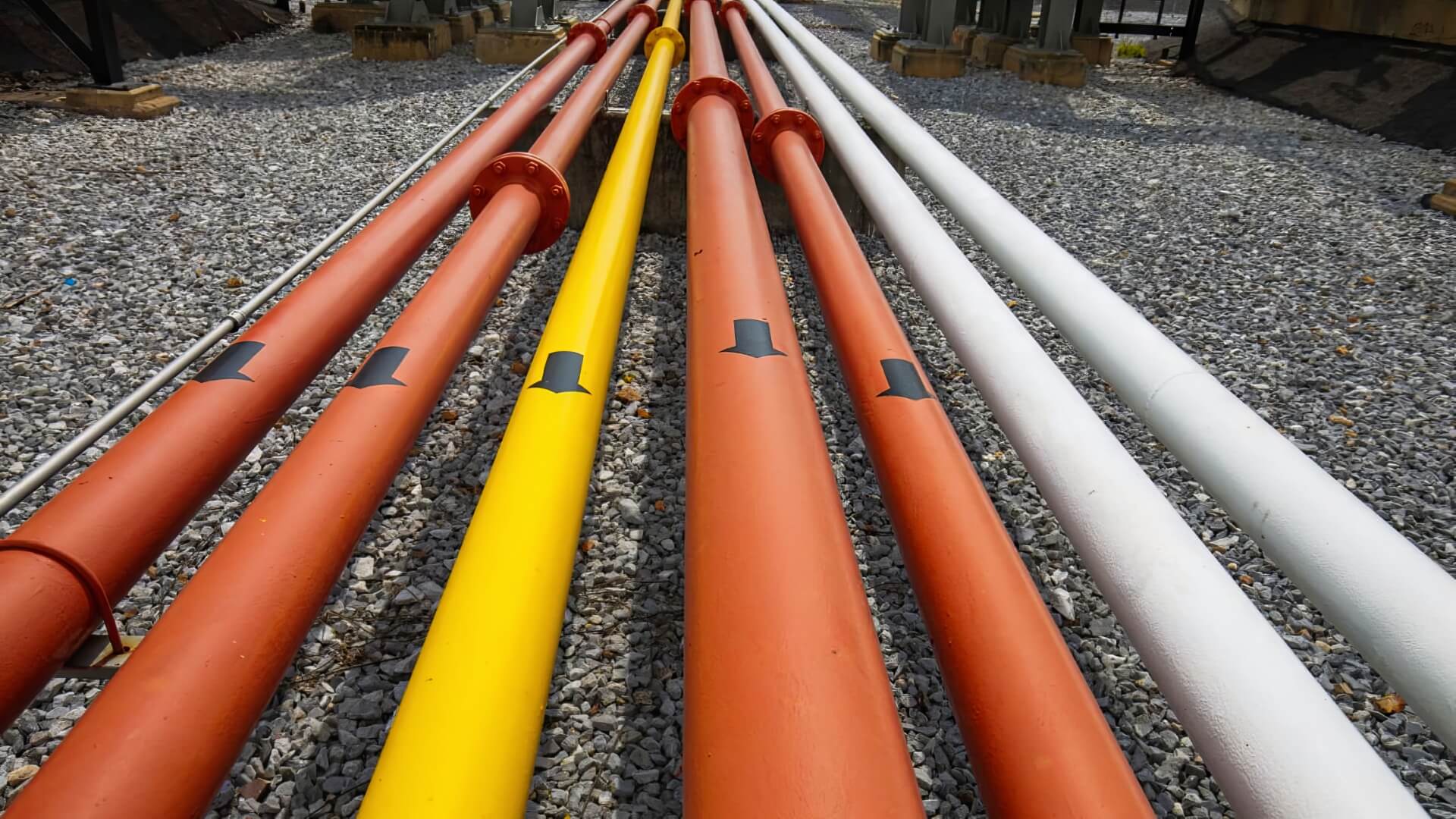Introduction to Hot Water Systems
Selecting the suitable hot water system for your home is essential and warrants careful thought. The type of system you select can have a significant impact on your energy costs, environmental footprint, and convenience. Among the choices, the debate often centers on whether to opt for gas or electric hot water systems.
Electric and gas storage hot water systems provide unique benefits and limitations in efficiency, operating costs, installation complexity, and maintenance requirements. Our goal is to provide a detailed comparison to help you choose the best hot water system for your home. In this article, we’ll explore the key distinctions between electric and gas hot water systems across these areas.
Understanding the nuances between gas and electric systems is fundamental for making informed choices, whether for new installations or replacing existing units. We’ll examine practical elements such as energy consumption, water heating delivery, flow rates, longevity, warranties, alongside purchase and installation expenses.
With the right information, you’ll be well-prepared to select a hot water system that meets your home’s specific needs.
Key Factors when Comparing Gas and Electric
When choosing the right hot water system between gas water heaters and their electric counterparts, there are several key factors that demand careful consideration:
- Upfront installation costs - Gas systems are often considered an expensive purchase and installation endeavour.
- Operating costs - Electricity prices are rising, while gas prices remain relatively stable. This affects ongoing running costs.
- Energy efficiency - Modern gas systems can be substantial energy savers, thereby representing the hot water system best option, yet heat pump models often outperform in efficiency within the electric alternatives.
- Flow rates - Instantaneous gas systems provide higher flow rates than electric storage tank systems.
- Environmental impact - Electric heat pumps emit substantially fewer greenhouse gases.
- Maintenance - Gas systems require more frequent servicing and safety checks.
Looking at these key areas in detail allows us to weigh up the pros and cons of each vs electric water system. We can tailor our choice to make certain the system complements your lifestyle and home’s unique demands.
Installation Costs
In terms of installation expenses, gas systems are usually pricier than electric ones. Here in Wetherill Park, Sydney, installing a gas system can cost anywhere from $2000 - $4000 depending on the unit size, difficulty of installation, need for new gas lines, and other variables.
In contrast, The installation cost for standard electric water heaters, including storage or hot water heat pump models, may range from $1500 - $2500. However, efficient heat pump systems acclaimed for energy savings can be as costly as $3500 or more. Location also plays a role, with installation generally more affordable outside of major cities.
The installation process for both systems involves connecting plumbing lines, wiring, and securing the unit with precision, often easier to install than expected. However, gas installations require certified professionals and safety checks, adding to labour costs. Multiple quotes are recommended.
Homeowners may be eligible for rebates on certain energy and cost efficient hot water systems under government schemes, helping to reduce upfront costs significantly.
Although gas vs electric hot systems represent a more substantial initial investment, one must consider the balance against operating and energy costs over the system’s lifespan. Our experts can offer quotes and advice tailored to your specific needs, comparing electric hot options to ensure the best fit for your household.
Operating and Energy Costs
In assessing operating and energy expenses, gas hot water heaters often outpace electric models in efficiency. Here are some important factors regarding running costs:
- Gas prices have remained relatively stable in recent years, while electricity prices continue to rise.
- Modern gas water heater continuous flow units can boast energy efficiency rates over 90%. In comparison, an average electric water heater can operate with varying efficiency levels.
- Electric heat pump systems, which heats water using less electricity, are generally more energy efficient than conventional electric resistance storage tanks, but some households prefer the convenience of instant hot water systems from a continuous flow gas model.
- Electric hot water systems can benefit from off-peak tariffs, reducing running costs.
- The operating cost for a gas system averages $200-300 per year, generally more budget-friendly compared to electric options. The annual operating cost for an electric instant tank averages $400-550, often proving more expensive to run.
- High-efficiency gas hot water heaters often maintain an edge over electric in terms of operating costs.
However, there’s no one-size-fits-all for energy expenditures—they vary based on hot water usage, tariff rates, and the age and type of system. We recommend estimating your annual costs for both gas and electric systems by comparing quotes.
Efficiency and Performance
When it comes to efficiency, we’re looking at how effective a hot water system is at using energy to heat water. The more efficient, or the most efficient a system is, the more energy is conserved during the heating process.
Electric storage tanks have varying efficiencies, with some models converting as much as 88% of the energy used into heat, whereas high-end heat pump systems can attain efficiencies reaching 400%. This means for every 1 unit of electricity used, a heat pump can deliver 3-4 units of heat energy. However, gas systems still tend to have a performance advantage.
Gas tankless water heaters can provide flow rates between 12-20 litres per minute, surpassing the standard 7-10 litres per minute offered by electric storage systems.
For large households or multiple bathrooms with high demand, gas systems are better equipped to supply ample hot water. Their capability to deliver hot water at high rates, along with fast recovery times and significant volumes, render them an attractive option for households with peak demands.
Whilst heat pump electric units are energy efficient, they do produce lower water heating output compared to instantaneous gas systems. This can become a limitation for homes with high demand. Gas systems have a performance advantage for rapidly heating and supplying large volumes of hot water on tap.
Environmental Impact
When it comes to environmental impact, electric and gas hot water systems have some key differences. Here are some points to consider:
- Electric heat pump systems generate 50-70% fewer greenhouse gases than standard electric hot water systems.
- Gas systems emit carbon dioxide and other greenhouse gases from burning natural gas or LPG. Emissions depend on the system’s efficiency.
- Modern high-efficiency gas units minimise emissions, but heat pumps are still cleaner.
- Solar hot water system choices, integrated with solar panels and complemented by gas or electric, represent a renewable and environmentally friendly option harnessing solar energy.
- In off-grid applications, gas can lower reliance on batteries/generators which have environmental impacts.
- Heat pump electric systems are generally considered the most eco-friendly option in suitable climates.
- Gas systems suit harsher climates better where heat pumps lose efficiency.
Talking to a professional can help weigh up the environmental pros and cons for your location and needs. Energy-saving technologies, renewable supplements, and decreased water heating usage contribute to a smaller environmental footprint.
Maintenance Requirements
When it comes to maintenance, gas hot water systems generally require more frequent and involved servicing compared to electric systems. This is primarily due to the gas burner and flue which need regular safety checks and cleaning.
Manufacturers’ service guidelines for storage systems differ, yet gas models commonly require comprehensive servicing every 3-5 years. This involves inspecting pipes and connections for corrosion and leaks, cleaning the burner and flue, replacing seals, checking the pilot light, testing valve operation and more. Annual minor services are also advised.
Electric systems have fewer mechanical parts, simplifying maintenance.
Storage tanks should be flushed yearly with cold water to prevent sediment buildup which reduces efficiency. Basic electrical checks may be required every 5 years or so.
One difference is that maintenance for gas systems may legally need to be done by licenced technicians only. DIY servicing of electric systems is generally permitted. But For safety reasons, it is recommended to seek professional maintenance for all types of systems.
With proper upkeep, gas storage and continuous flow systems can have lifespans of 10-15 years, in contrast to the 8-12 year expectancy for electric storage tanks. If opting for a gas system, ensure service technicians possess the necessary qualifications.
Making the Right Choice for Your Home
- Family size and hot water usage - Large households with high demand may benefit more from a gas system’s superior flow rates.
- Installation costs - Gas tends to cost more upfront, but electric isn’t cheap either for premium systems.
- Operating costs - Gas has an edge here in most cases thanks to stable energy prices.
- Energy efficiency - Models utilising a heat pump system are more eco-friendly but can sometimes compromise on performance.
- Environmental impact - Electric heat pumps produce the lowest emissions.
- Maintenance - Gas requires more frequent professional servicing for safety.
- Climate and location - Cooler climates suit heat pumps better; gas adapts to harsh weather.
Ideally, compare quotes for both systems side-by-side. This allows you to weigh up the costs over the full lifespan. For those prioritising the environment, modern gas systems and electric heat pumps offer significant benefits through greener credentials.
If your household has high hot water demands, gas continuous flow may be the best option. When prioritising efficiency, heat pump hot water systems excel over similar electric hot systems. Solar hot water systems can also supplement gas or electric to reduce environmental impacts.
Family size and hot water usage - Large households with high demand may benefit more from a gas system’s superior flow rates.Installation costs - Gas tends to cost more upfront, but electric isn’t cheap either for premium systems.Operating costs - Gas has an edge here in most cases thanks to stable energy prices.Contact Us for Professional Advice
Selecting a hot water system necessitates professional advice. At Wetherill Park Plumbing, our experienced team can provide tailored advice to help you select the perfect system for your home and needs.
Contact us today on 1300 349 338 or jobs@wetherillparkplumbingservices.com.au to discuss your situation. We service all areas across Wetherill Park and wider Sydney. Our qualified plumbers can:
- Provide quotes for new gas and electric hot water system installations
- Offer maintenance and repairs for your existing system
- Advise which type and size of system best suits your home
- Explain running costs, energy efficiency and features of different systems
- Handle full supply, installation, and certification for peace of mind
With more than a decade of expertise, we streamline the process of choosing the right system for your water requirements. Our specialist advice aids homeowners in making the correct initial choice. For professional advice tailored to your family’s needs, get in touch today.






